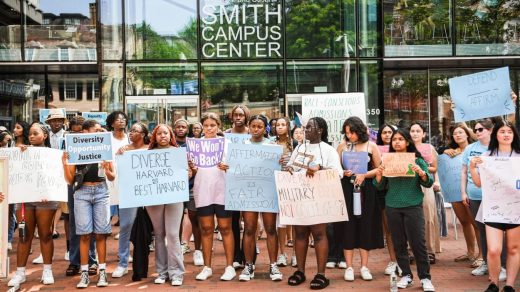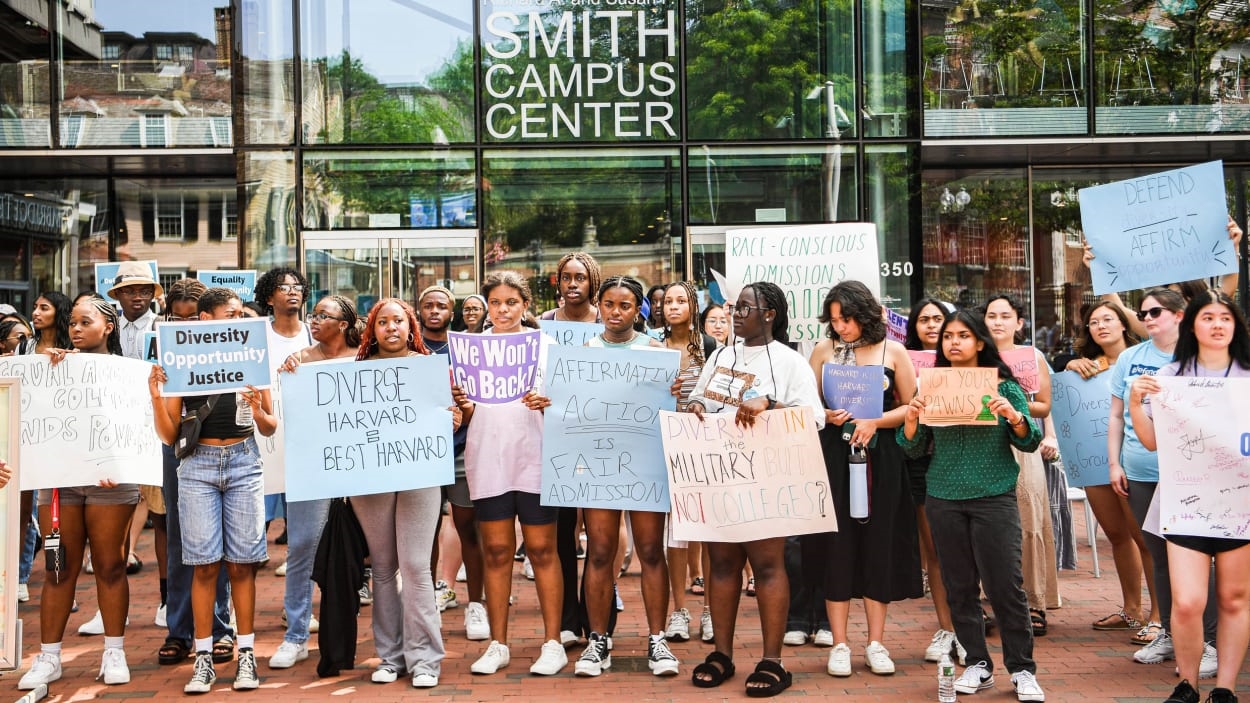How DEI work will actually be affected by the affirmative action ruling, according to experts
Since the Supreme Court’s landmark ruling on affirmative action last week, many observers have sounded the alarm on how it might shake up the corporate world and derail hard-won initiatives that address diversity, equity, and inclusion in the workplace. The decision, which centered on the admissions programs at Harvard and the University of North Carolina, effectively gutted race-based admissions in higher education—a major departure from decades of precedent that some legal experts say could set the stage for attacks on corporate DEI programs.
“The sense is that rationale is going to move back into the workplace world of affirmative action,” says Stephen Paskoff, a former EEOC attorney and employment lawyer who now runs the training company ELI. “This is a signal that certain types of decision-making are not going to be accepted as legal, whether they’re violations in education or in the workplace.”
But from a legal perspective, the ruling itself—which invokes the Equal Protection Clause of the Fourteenth Amendment and Title VI of the Civil Rights Act—doesn’t impact private employers, who are governed by Title VII, which bars employment discrimination based on race, color, religion, sex and national origin. The Court’s decision shouldn’t prevent companies from carrying on with their DEI work, which has always been distinct from affirmative action in higher education. “With limited exceptions, employers are not allowed to use race as a ‘plus factor’ in making employment decisions in the ways that colleges and universities have been using it to make admissions decisions,” says Joelle Emerson, the cofounder and CEO of Paradigm, a diversity and inclusion strategy firm. “So there was already a big difference in what employers can do.”
Instead, companies have used other strategies to address their diversity issues, many of which are now considered basic tenets of corporate DEI programs. In recent years, however, as the momentum from George Floyd’s death faded and companies faced economic headwinds, corporate interest in DEI has been on the decline—which means the companies that remain committed to DEI work have already proven more resistant to those existential challenges. And while employers have long been cautious about the language they use in DEI programming, due to both legal concerns and mounting attacks on diversity initiatives, they are still protected by Title VII. “You can’t ban equity and inclusion, because equity and inclusion are embedded in Title VII,” says Alvin Tillery, a professor at Northwestern University who runs a consulting firm that advises businesses on their DEI practices.
Still, despite all that, diversity experts have legitimate concerns that the ruling might have a chilling effect that influences corporate commitments to DEI. It comes at a moment when conservative activists and politicians are stoking outrage over ESG and DEI programs, with states like Florida introducing legislation to undermine efforts in the public sector; even the term “DEI” has become loaded. The driving forces behind the affirmative action ruling also echo a more sweeping backlash to equity and inclusion policies and systemic change, which has already touched the corporate world. “Organizations were starting to look at those systemic changes and question the ways in which their systems had functioned in the past,” says Katina Sawyer, a professor at the University of Arizona who studies DEI. “What I’m seeing, as those conversations started bubbling up, is reactivity. One of the reasons I think reactivity is happening, both at the societal level and in organizations, is because equity fundamentally means that things need to change in a real way.”
From a legal standpoint, it’s also true that companies are always concerned with potential liability in response to changes in the law or court decisions. In the interest of reducing their exposure to legal action, Emerson says, they have a tendency to overcorrect—as many of them did when Trump issued an executive order in 2020 that targeted diversity trainings. “Any time there’s a new law that’s passed, the legal team has to review it,” Emerson says. “That slows things down pretty dramatically. When Trump signed [that] executive order, we saw organizations stop all training—even trainings that had nothing to do with the specific content at issue.”
The greatest fallout from the ruling across the corporate sphere may well be the heightened risk of litigation. “This case will energize and motivate people to file more ‘reverse discrimination’-type lawsuits against organizations,” Emerson says, pointing to a recent lawsuit against Starbucks brought by a white employee who was awarded nearly $26 million.
Many companies, both in the tech industry and beyond, have embraced DEI programs and frequently reiterate their commitment to the work—often with little to show for it. But those employers may still find themselves fending off legal attacks fueled by the affirmative action ruling, according to Tillery. “This now gives every person in those organizations with some sort of grievance a seemingly more legitimate basis to [challenge them],” he says. “If you’re an organization that has concerns about being sued, you may change your efforts in some ways.” Companies could also end up on the receiving end of threat letters from right-wing groups that want to snuff out corporate DEI programs.
But it’s not clear that pulling back on those initiatives is the right approach to shield themselves from legal action. The Court’s decision on affirmative action may reflect the interests of the broader conservative movement, but Tillery points out that the new precedent set by the ruling could also invite a flurry of discrimination lawsuits from underrepresented workers. “If I’m a company that’s running a DEI program, and I’m falling short of my goals, I’m now thinking: Every time a person of color doesn’t get a job in a hiring situation, could they now say it’s discriminatory?” he says. “So this just creates a very low bar. Not being picked is now tantamount to discrimination.” (In fact, activist groups are already suing Harvard over the practice of legacy admissions, arguing it largely benefits white students.)
From that angle, employers may not take this as an invitation to quietly shelve their DEI programs. Some of them might actually shore up their efforts but with a greater emphasis on the protections outlined by Title VII, which Tillery is already encouraging employers to use as a framing for their DEI work. This ruling will also have a notable impact on talent pipelines, which a number of major tech companies already noted in an amicus brief last year. (The chair of the EEOC mirrored this sentiment in a statement last week, also adding that “it remains lawful for employers to implement diversity, equity, inclusion, and accessibility programs that seek to ensure workers of all backgrounds are afforded equal opportunity in the workplace.”)
That’s all the more reason for companies to actually invest further in diversity initiatives across recruitment, Emerson says, particularly with respect to hiring from nontraditional pathways. “Organizations that have been investing in building a diverse workforce are going to have to figure out a whole new host of strategies,” she says, “because colleges and universities are going to become a lot less diverse.”
In that sense, the affirmative action decision offers an opportunity for employers to actually double down on DEI, and plenty of companies have already indicated that they don’t intend to stray from their corporate commitments—at least for now. “I see some reactions that I’ve been surprised by,” Emerson says. “A lot of organizations that we work with [are] sending explicit messages about this ruling, and how they disagree with it. I think, like many things in [the DEI] space, this is going to create a line that differentiates companies that are truly committed from those that aren’t. It’s sort of like a Rorschach test for your actual commitment to DEI.”
(24)



